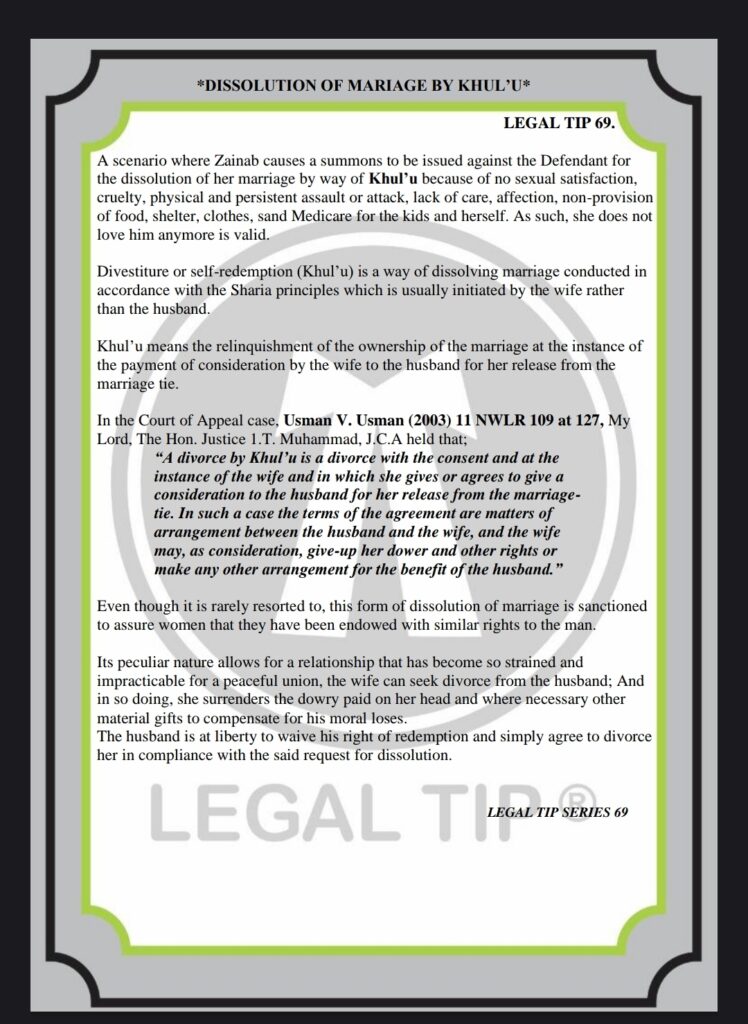A scenario where Zainab causes a summons to be issued against the Defendant for the dissolution of her marriage by way of Khul’ because of no sexual satisfaction, cruelty, physical and persistent assault or attack, lack of care, affection, non-provision of food, shelter, clothes, and Medicare for the kids and herself; as such, she does not love him anymore.
Divestiture or self-redemption (Khul’) is a way of dissolving marriage conducted in accordance with the Sharia principles which is usually initiated by the wife, rather than the husband.
Khul’ means the relinquishment of the ownership of the marriage at the instance of the payment of consideration by the wife to the husband for her release from the marriage tie.
In the Court of Appeal case, Usman V. Usman (2003) 11 NWLR 109 at 127, My Lord, The Hon. Justice 1.T. Muhammad, J.C.A held that;
“A divorce by Khul’ is a divorce with the consent and at the instance of the wife and in which she gives or agrees to give a consideration to the husband for her release from the marriage-tie. In such a case the terms of the agreement are matters of arrangement between the husband and the wife, and the wife may, as consideration, give-up her dower and other rights or make any other arrangement for the benefit of the husband.”
Even though it is rarely resorted to, this form of dissolution of marriage is sanctioned to assure women that they have been endowed with similar rights to the man.

Its peculiar nature allows that, in a relationship that has become so strained and impracticable for a peaceful union, the wife can seek divorce from the husband; and in so doing, she surrenders the dowry paid on her head and where necessary, other material gifts to compensate for his moral loses.
The husband is at liberty to waive his right of redemption and simply agree to divorce her in compliance with the said request for dissolution.
LEGAL TIPS is anchored by Ms CIA Ofoegbunam, an Abuja-based lawyer who is passionate about legal practice. LEGAL TIPS offers quick hints on substantive law, as well as rules of practice and procedure, and serves as a handy reference guide to lawyers, especially in court. Published on a weekly basis, the LEGAL TIPS Series is CIA’s modest contribution to legal development in Nigeria.



